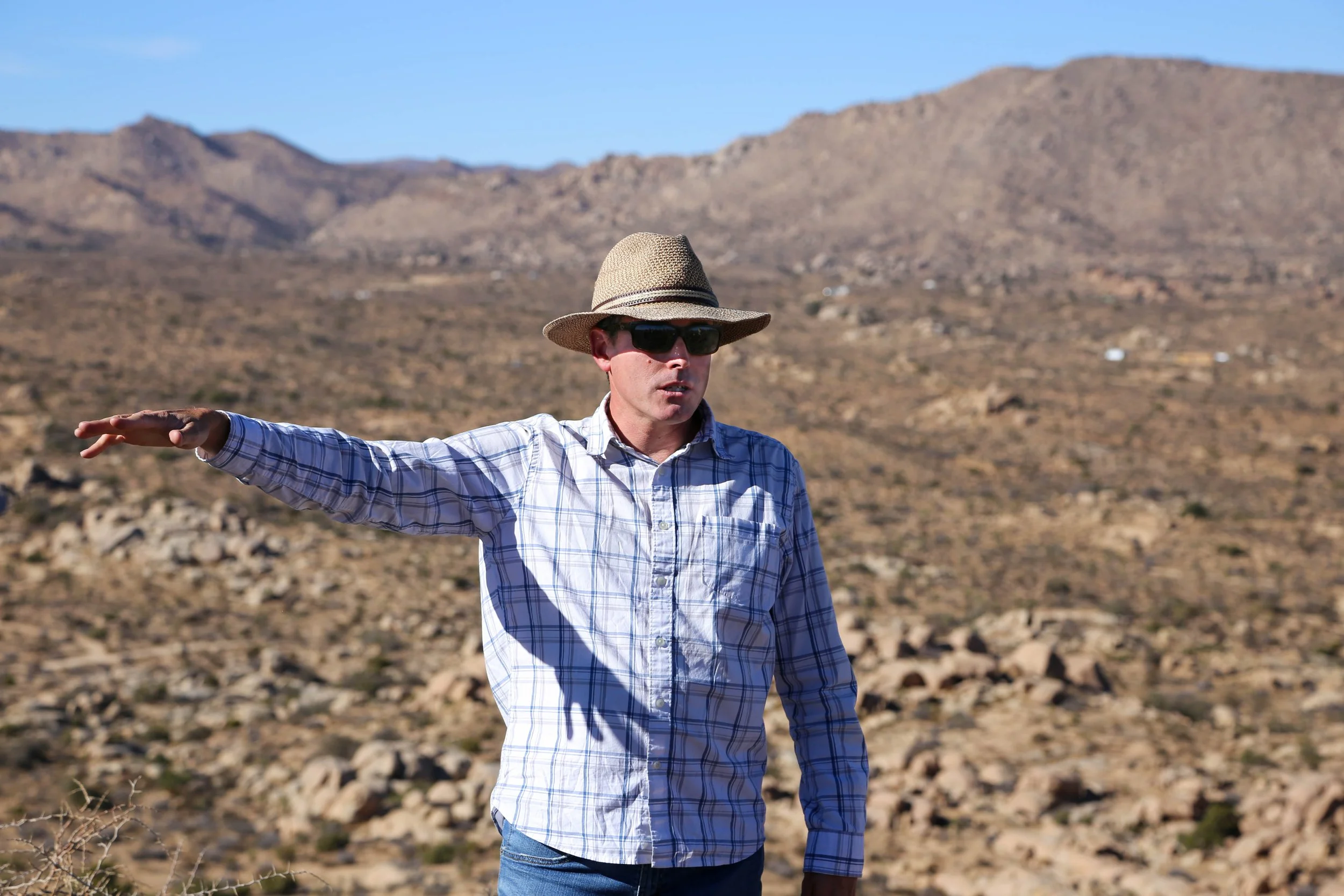Frazier Haney
Executive Director, The Wildlands Conservancy
Sand to Snow National Monument, CA
11/13/2021
Frazier Haney, executive director of The Wildlands Conservancy, works hard to protect wild lands. When the land outside Joshua Tree National Park was threatened with development they started “the campaign to fire people up” to fight a proposed wind energy project. Getting community members on board with preserving the local wilderness is a major part of Frazier’s advocacy. When talking about protecting wild lands, he proudly produced three thick reams of paper, bearing signatures against the wind farm on Black Lava Butte. Frazier asserts, “you can’t stop a development based on beauty. But you can inspire people with beauty.” There is tension between preservation and developing green energy. While we need to transition away from carbon-based energy, he believes the place to build renewable energy technology is in already developed places. This could mean solar panels on top of buildings, or wind energy remade in derelict wind farm sites.
The Wildlands Conservancy acquires private land that may be developed near and between current wild areas. This is important because it allows animals to utilize larger ranges of land and migrate between different areas. Continuous undeveloped land is necessary for biodiversity and species longevity. Frazier says of the Sand to Snow National Monument, “it’s a beautiful place. And I think that’s enough reason to save a place.”
By Reya Fore




